The Tile Shoppe Uses Integration and Automation to Provide Awesome Customer Service
SAP Business OneThe Tile Shoppe trusted Vision33 because of Vision33’s dozens of successful Shopify-to-Saltbox...
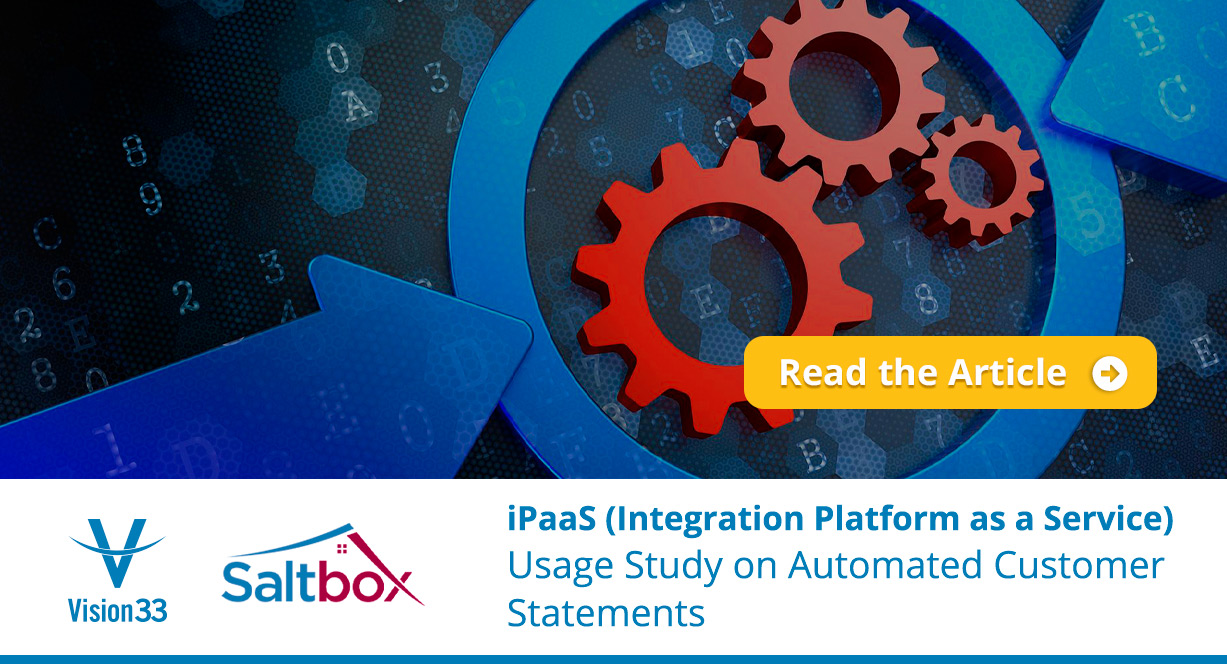
March 09, 2021
Blog > iPaaS (Integration Platform as a Service) Usage Study on Automated Customer Statements
Vision33’s Saltbox Integration Platform is a game-changer. Although businesses have digitized faster by compressing several years of enterprise technology adoption into the last year, the number of connection points required to manage those applications increased.
With this rapid technology adoption, it’s vital for businesses to examine how their enterprise investments connect with each other and their system of record. Their core business platform should integrate with every system.
That’s where the Saltbox iPaaS (integration platform as a service) comes in.
This case study illustrates one of the many ways Saltbox provides value: by automating processes like customer statements.
Company ABC sends customers weekly statements of account as part of their ongoing efforts to collect cash promptly. The task is mostly manual, with an accounts receivable (AR) clerk required to access SAP Business One’s customer statements function from their mail client for each statement of account.
ABC wants to automate this process to reduce the overhead on the AR clerk and potentially save money on printing and stationery costs associated with their Accounts Receivable processes.
With Saltbox, it’s easy to automate repetitive tasks like these. Even better, you can do so without installing additional applications because Saltbox is a cloud-based solution.
You should set up Saltbox workflows on a scheduled trigger to query your business partner data in SAP Business One. It can look for business partner properties, specific payment terms, user-defined fields, and more to generate a list of customers who receive their statements by email.
Saltbox can then generate an email for each customer record using email addresses stored on the business partner in SAP Business One. Saltbox can generate HTML output and automatically embed it into the email, and keywords can personalize each email based on the recipient.
ABC could even include a link to the Vision33 Customer Portal product where customers can access their invoices and make payments online.
First, ABC created a new workflow in Saltbox. (At the end of the article, you can import our example project and see for yourself.) ABC named this ‘send customer statement,’ but users may choose any name.
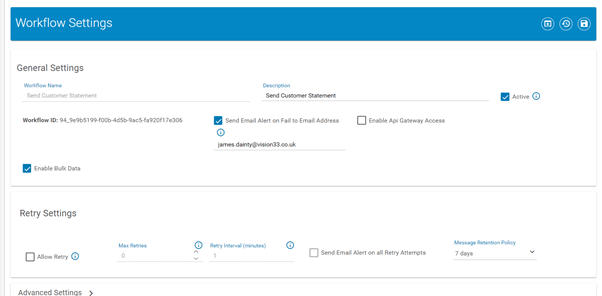
Then, for the Workflow settings, ABC configures the Connectors between SAP Business One (or more specifically the service layer) the email, and with Saltbox’s connectors.
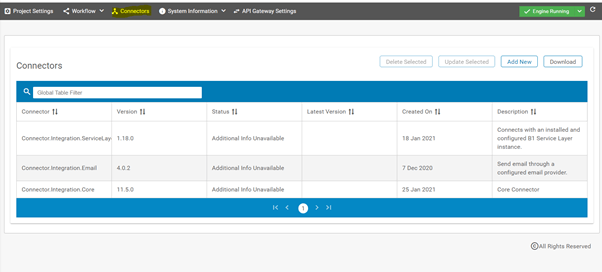
More information about completing this action is available in our Saltbox help articles.
ABC then created a query to gather the data they wished to send to customers. Below, you can see how the query extracts open transactions from the financials transactions tables in SAP Business One, along with a few extra details required to send to customers.
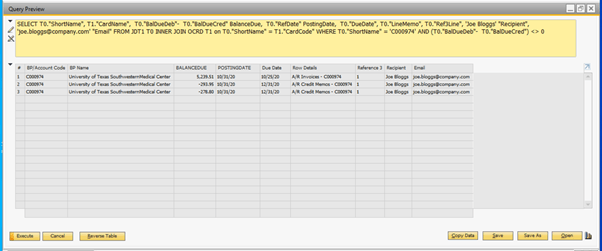
Queries are saved in the SAP Business One queries section. Here, ABC noted a name and folder for its saved query.
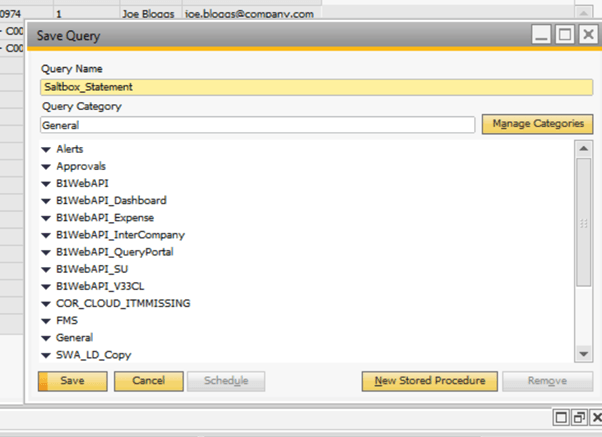
SELECT T0."TransId", T0."ShortName", T1."CardName", T0."BalDueDeb"- T0."BalDueCred" BalanceDue, T0."RefDate" PostingDate, T0."DueDate", T0."LineMemo", T0."Ref3Line", 'Joe Bloggs' "Recipient", 'joe.bloggs@company.com' "Email" FROM JDT1 T0 INNER JOIN OCRD T1 on T0."ShortName" = T1."CardCode" WHERE T0."ShortName" = 'C20000' AND (T0."BalDueDeb"- T0."BalDueCred") <> 0
Next, ABC needed a new workflow. They started by opening a workflow in Saltbox and defining a trigger.
ABC chose a service layer trigger. In the source settings, they specified the source as an SAP Business One query. (Note that the user can enter the category and name of the query they designed in the step above.)
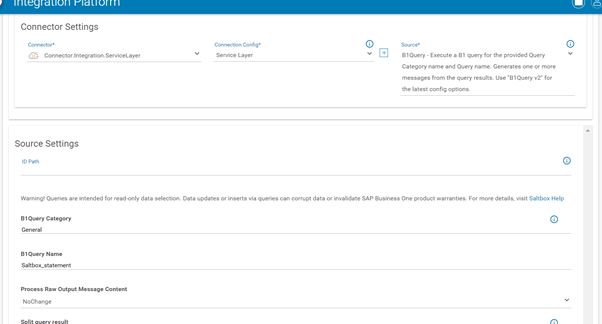
In this example, ABC used a scheduled trigger in the workflow trigger screen and defined the frequency of customer emails.
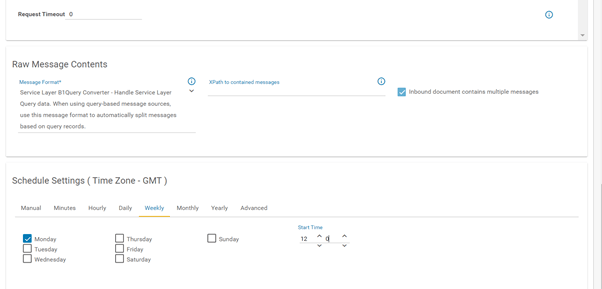
Next, they went to their workflow designer and added a step from the core connector called Transform. In this step, they ticked the ‘apply map’ function and created a map name. ('Customer statement’ or similar is sufficient.)
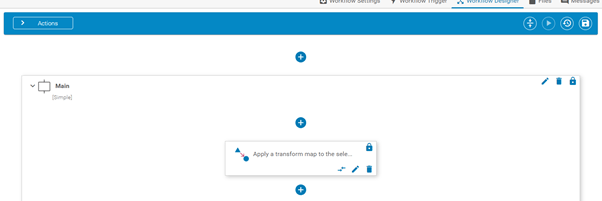
This allowed ABC to use the visual data mapper to map their source message data from the SAP Business One query to an HTML table for output onto the email. (They needed an XSLT mapping file to create the HTML email body.)
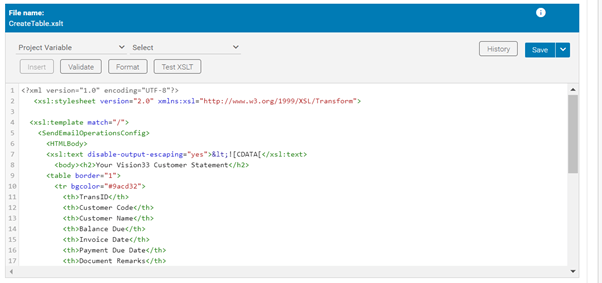
Then, ABC added a “send email” step to generate the email they want to send.
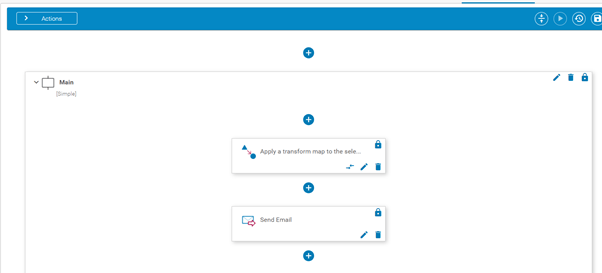
Within the send email action, ABC can map fields from their source data to the generated email they wish to send to recipients.
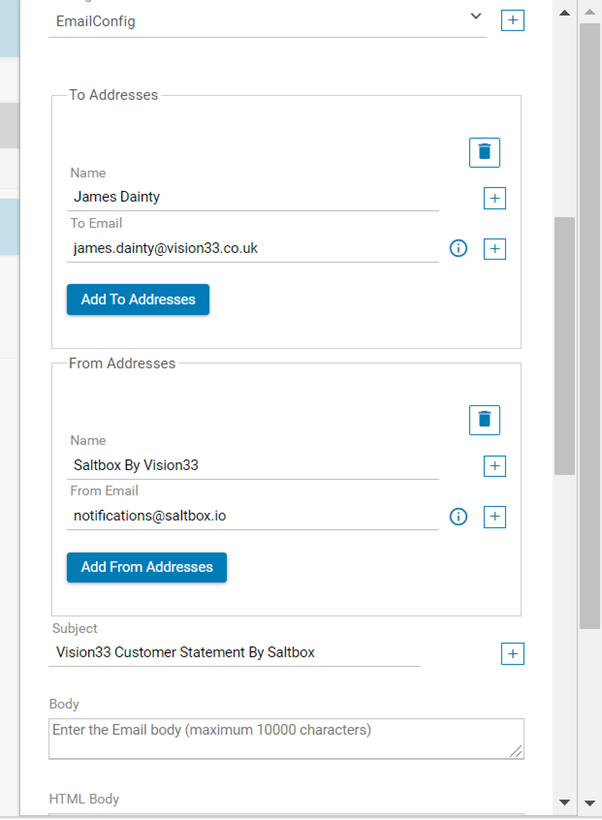
To test the workflow, ABC ran it manually by going to the messages tab and clicking the run button. This showed if the email generation succeeded or if there were errors.
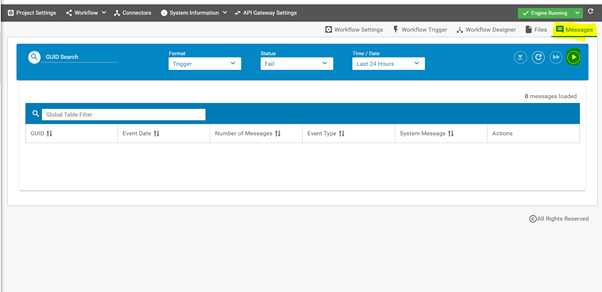
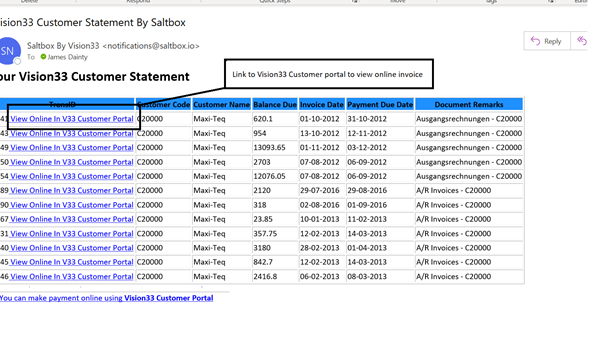
Note the hyperlink to the Vision33 Customer Portal at the end.
When clicked, the link at line level in the statement allows ABC to view and download a copy invoice from the Vision33 Customer Portal.
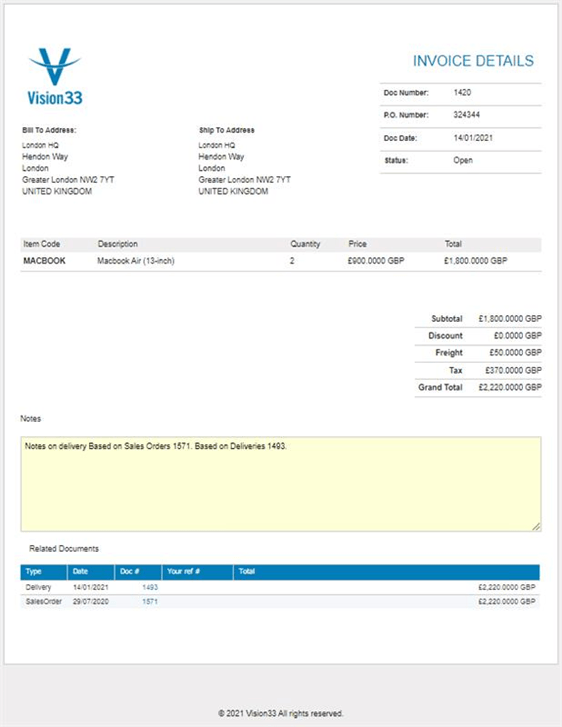
Using Saltbox, ABC automated its business processes and reduced overhead, saving money on printing and stationery. To learn more about what your business can do with Saltbox watch Vision33's Saltbox demonstration today.
Subscribe to our newsletter to receive our latest blog posts, case studies and ERP news delivered straight to your inbox.
The Tile Shoppe trusted Vision33 because of Vision33’s dozens of successful Shopify-to-Saltbox...
Integrate your government applications with The Saltbox Platform from Vision33 to say goodbye to...
As an Accela Technology Alliance Partner, Vision33 introduces The Saltbox Platform to public sector...
Recieve our latest blog posts, case studies, and ERP news
delivered straight to your inbox.